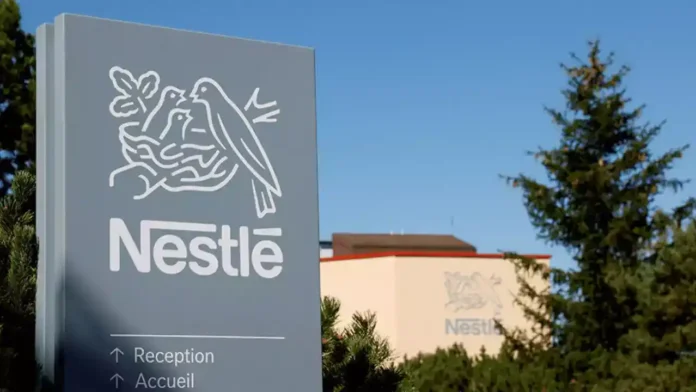Nestlé plans to introduce a series of meals in the US tailored to complement the use of GLP-1 weight-loss medication.
The Swiss corporation stated that the Vital Pursuit products are rich in protein, provide ample fiber, include vital nutrients, and are portioned to match the appetite of individuals using weight loss medication.
Nestlé announced that the lineup of 12 different product variations will consist of frozen meals like grain bowls, protein pasta dishes, sandwich melts, and pizzas, all priced at $4.99 or less.
The group expressed its commitment to further investigating opportunities to broaden its product range and cater to evolving consumer dietary preferences.
Continue Exploring: Nestle and Dr. Reddy’s announce joint venture for nutraceutical brands in India
Steve Presley, CEO of Nestlé’s North America division, remarked, “At Nestlé, our aim is to accompany our consumers through every stage of their lives, both now and in the future. With the increasing prevalence of weight loss medication usage, we recognize an opportunity to assist these consumers. Vital Pursuit offers convenient, delicious food choices tailored to meet the requirements of individuals in this evolving category.”
“We’re utilizing our extensive comprehension of consumers and nutritional science to anticipate the trends influencing consumer habits, and we’re pioneering across our product range to provide offerings that resonate with people.”
Nestlé disclosed that Vital Pursuit products will hit shelves nationwide across the US in the fourth quarter of the year.
Tom Moe, president of Nestlé’s US meals division, emphasized, “We understand that each consumer embarking on a health journey has unique needs and considerations. Offering options to accommodate those needs will remain pivotal.”
“To accommodate changing consumer eating patterns, we have expanded the options in our meals portfolio in recent years. We plan to expand Vital Pursuit with other product forms as the industry develops in order to better serve our customers.”
GLP-1, or glucagon-like peptide 1, encompasses a class of anti-obesity medications primarily administered via injection, though there is a growing presence of pill-based alternatives entering the market.
Continue Exploring: PepsiCo CEO downplays concerns over GLP-1 drugs’ impact on food industry as company raises earnings projection
Prominent brands in this category include Ozempic and Negovy from the Danish pharmaceutical firm Novo Nordisk. Ozempic gained its initial approval from the US Food and Drug Administration for treating Type-2 diabetes in late 2017.
JP Morgan research anticipates that the number of GLP-1 users in the US could climb to 30 million by 2030, constituting approximately 9% of the population. Trilliant Health analysis discovered that by the end of 2022, approximately nine million US residents were using a GLP-1 medication.
In October last year, during Nestlé’s third-quarter sales report, the company’s management faced questions from analysts regarding the potential effects of GLP-1 drug usage on the business.
During that period, Nestlé CEO Mark Schneider downplayed the potential sales impact resulting from the introduction of appetite-suppressing GLP-1 drugs in the US, opting instead to emphasize the innovation opportunities.
Schneider emphasized that although these medications introduce fresh avenues for therapy among these patients, they should not be viewed as a lasting remedy or a substitute for a balanced diet and adequate exercise regimen in the case of type-2 diabetes.
“We’re actively developing several companion products to support patients during and after their time on these drugs. Our aim is to mitigate the risk of malnutrition and loss of lean muscle mass during GLP-1 therapy, as well as to prevent or minimize weight regain post-therapy.”
Continue Exploring: Nestle CEO dismisses impact of weight-loss drugs on company’s growth





